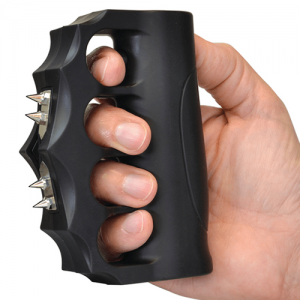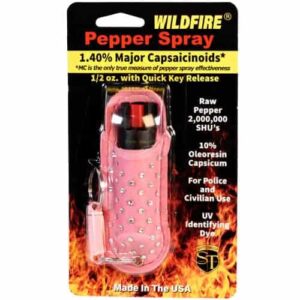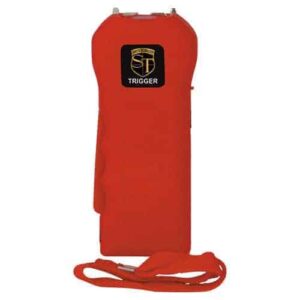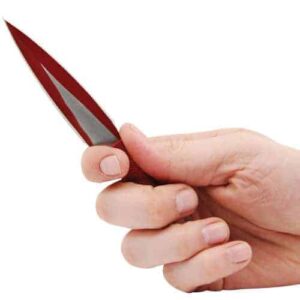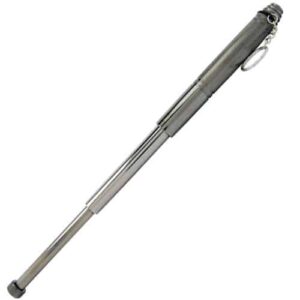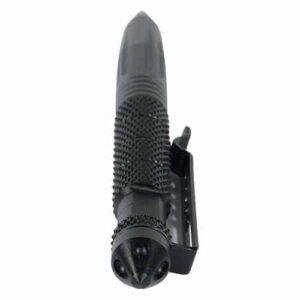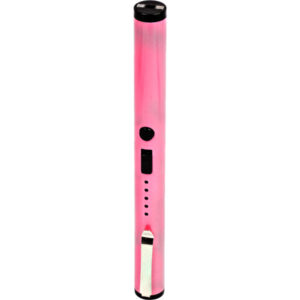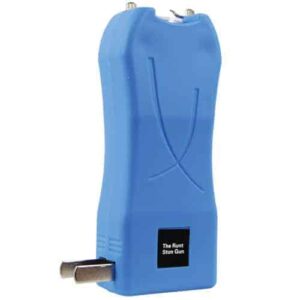Imagine walking down the street, innocently enjoying your day, when suddenly you find yourself in the middle of a protest or, even worse, a direct recipient of a pepper spray attack. In just a split second, your eyes are burning, tears are streaming down your face and it feels as if you can’t breathe. In the article “Pepper Spray Treatment”, you will find potentially life-saving tips and tricks on how to immediately react and effectively treat pepper spray exposure. Knowledge of such procedures could be key to minimize discomfort and prevent severe damage to your eyes and respiratory system. So, let’s arm yourself with this crucial information to be prepared for any unexpected events.

Table of Contents
ToggleUnderstanding Pepper Spray
Pepper spray is a self-defense tool that uses Oleoresin Capsicum (OC) derived from chili peppers to irritate the eyes and respiratory system. It is a handy device that can aid in personal protection, and it is frequently used by law enforcement agencies and civilians worldwide.
What is Pepper Spray?
You might recognize pepper spray as a small canister with a trigger, often found on keychains. When deployed, a fine mist of concentrated capsaicinoids, the compound found in chili peppers that makes them hot, is projected towards the target. Designed to impair an attacker or potential threat, it induces a range of effects that can incapacitate someone temporarily.
How Does Pepper Spray Work?
Once deployed, pepper spray inflames mucous membranes, causes involuntary eye closure, coughing, and difficulty breathing, among other effects. The capsaicinoids bind to pain receptors, causing an intense burning sensation. They do not, however, cause any permanent damage.
Effects of Pepper Spray
Exposure to pepper spray can cause various symptoms including burning in the throat, coughing, difficulty breathing, eyelid spasms, and temporary blindness. The severity of these symptoms can vary based on the concentration of the spray and the duration of exposure, but most symptoms resolve within one to two hours.
Pepper Spray Treatment Options
When exposed to pepper spray, it’s essential to address the effects promptly to provide relief and minimize discomfort.
Managing Exposed Skin
The first step after exposure is to remove any clothing contaminated with the pepper spray and wash the skin with non-oil or alcohol-based soap. Applying cold compresses to the affected areas can help alleviate the burning sensation.
Decontamination Process
Decontaminating the skin is next, and it should be done with cold water to close the pores and prevent further absorption of the chemical. It is important to not rub or scratch the skin as this can worsen the burning.
Treating Eye Irritation
If the spray has contacted the eyes, flush them out with lukewarm water for up to 20 minutes or until the discomfort subsides. Try not to touch or rub your eyes, as this can increase irritation.
Addressing Respiratory Symptoms
If you’re having trouble breathing post-exposure, try to remain calm, move to a well-ventilated area, and take deep, slow breaths to help reduce coughing and throat irritation. If breathing becomes significantly difficult, seek immediate medical attention.
Managing Discomfort and Pain
Over-the-counter pain relief remedies can help manage the overall discomfort and pain. Cold compresses can also provide temporary relief from the burning sensation.
Seeking Medical Attention
If symptoms persist, especially difficulties in breathing or severe eye irritation, it’s crucial to seek professional medical help. Delaying medical care can exacerbate the situation and potentially lead to complications.

Home Remedies for Pepper Spray Treatment
While professional help is ideal, especially for severe cases, there are some home remedies that can help as initial immediate treatments.
Rinsing with Cold Water
This is the most immediate and accessible remedy. Cold water can help dull the sensation of burn and wash away some of the capsaicinoids.
Using Milk or Dairy Products
Milk and dairy products are believed to neutralize capsaicinoids due to the fat and oil they contain. However, this is a controversial remedy and it is best to still rinse the affected area with water after application.
Applying Mild Soap or Baby Shampoo
Non-oil based mild soap or baby shampoo can help remove the oily residue of the spray. Avoid soaps that contain alcohol or oils, as these can increase irritation.
Utilizing Baking Soda Paste
A paste made from baking soda and water can help counter the effects of pepper spray, though it should not be used on the eyes or ingested.
Using Lemon Juice or Vinegar
While these are often recommended as a remedy, they are highly acidic and may worsen symptoms if used incorrectly.
Applying Aloe Vera Gel
Aloe Vera gel can soothe and cool the affected skin, providing relief from the burning sensation. However, it should not be applied to the eyes or open wounds.
Utilizing Coconut Oil
A thin layer of coconut oil can provide a protective barrier on the skin, preventing further irritation, but it should not be applied to the eyes.
Medical Professionals and Pepper Spray Treatment
Professional medical assistance is invaluable when it comes to treating the effects of serious exposure to pepper spray.
Diagnosis and Evaluation
A medical professional can accurately diagnose the severity of your case and provide proper care. They have the knowledge to recognize potential complications and conditions that might require specific treatment.
Prescription Medications
In some cases, prescription medications might be necessary to manage severe reactions to pepper spray. This could include steroids to reduce inflammation or antibiotics to prevent any infections.
Eye Irrigation Techniques
In the event of eye exposure, a medical professional can thoroughly rinse your eyes with a saline solution— a more efficient and safer method than home remedies.
Symptomatic Pain Management
Medical professionals can administer appropriate medications to manage pain effectively, depending on the severity and area of exposure.
Follow-Up Care
It is also essential to have follow-up appointments to ensure the complete recovery and no lingering side effects from the exposure.

Prevention and Precautions
Prevention is always better than treatment, and this holds true when it comes to pepper spray. Knowing how to prevent accidental exposure and mishandling ensures safety.
Knowing Safe and Legal Use of Pepper Spray
It’s important for users to understand the safe operation of pepper spray devices. Be aware of the laws and regulations in your area regarding possession and use.
Proper Handling and Storage
To reduce the risk of accidental exposure, pepper sprays should be stored in a secure and safe place, away from children and pets.
Avoiding Exposure
The best way to avoid the effects of pepper spray is to avoid exposure altogether. If possible, keep a safe distance from any situation where pepper spray may be used.
Pepper Spray Treatment for Different Body Areas
The treatment for pepper spray exposure varies depending on the exposed body area.
Treating Facial Exposure
Facial exposure might require immediate rinsing with a mild soap or baby shampoo, careful not to allow the solution to be ingested or reach the eyes.
Addressing Eye Contamination
For eyes, the best course of action is a saline rinse or flushing the eyes out several times with clean water. Blinking frequently can also help remove contaminants from the eye.
Treatment for Skin Contact
Cold water, non-alcoholic or non-oil-based soaps, and cold compresses are a good treatment for skin exposure.
Managing Inhalation Exposure
Fresh air and controlled breathing are the primary remedies against inhalation exposure, but medical attention may be required if the reaction is severe.

Pepper Spray Treatment for Specific Populations
The way the body responds to pepper spray might be different across various populations, and special care may be needed accordingly.
Treating Pepper Spray Exposure in Children
Children may be more susceptible to the effects of pepper spray due to their sensitivity. Always consult a medical professional before applying any of the home remedies mentioned above. Monitoring them closely after exposure is absolutely crucial.
Pepper Spray Treatment for the Elderly
Handling exposure in elderly individuals might require extra care due to potential underlying health conditions. It’s always recommended to seek immediate medical attention.
Managing Pepper Spray Exposure in Pets
If your pet gets exposed to pepper spray, consult a vet immediately. In the meantime, rinse their eyes and skin with cold water. Be extra careful not to let the solution enter their mouth or nose.
Treating Pepper Spray Contamination in Clothing and Objects
To decontaminate clothing or objects, wash them separately using hot water and vigorous scrubbing. It is advisable to disposable gloves while handling contaminated items.
Common Myths and Misconceptions
Every subject has its myths and misconceptions, and pepper spray treatment is no different.
Myth: Applying Water Worsens the Burning Sensation
It’s a common misconception that water worsens the burning sensation of pepper spray. On the contrary, water, specifically cold water, helps in soothing the burn and can also aid in washing some of the spray away.
Myth: Rubbing Your Eyes After Exposure Spreads the Chemical
This is partly true; rubbing your eyes can spread the irritants by smearing the oil-based compound across the skin. However, it does not force the chemical deeper into the tissue, which is a common belief.
Myth: Urinating on the Skin Can Neutralize Pepper Spray
This has no scientific base and is entirely false. Urine can cause additional skin or eye irritation.

Legal Implications
The legality of pepper spray varies greatly from one country to another and even among states or provinces within the same nation. Keeping yourself updated can save you from potential legal trouble.
Laws and Regulations Regarding Pepper Spray
Some countries have strict regulations about the possession, carry and use of pepper spray. It’s essential to brush up on these regulations in your jurisdiction to avoid falling foul of the law.
Consequences of Misuse or Illegal Use
Misusing or using pepper spray illegally can carry severe penalties, from fines to imprisonment based on the degree of misuse and the jurisdiction’s laws.
Seeking Legal Advice
If you’re unsure about the legality of pepper spray in your area or if you may have used it improperly, seeking legal advice can protect your rights and aid in navigating the legal system.
Conclusion
Pepper spray is a potent tool, designed to temporarily incapacitate threats to personal safety. Knowing how to handle exposure either for oneself or for others is an essential part of responsible use. This article aimed at shedding light on understanding the nature of pepper spray, its effects, immediate treatment, and thorough follow-up necessary, to ensure anyone can be prepared for any situation involving this tool.



